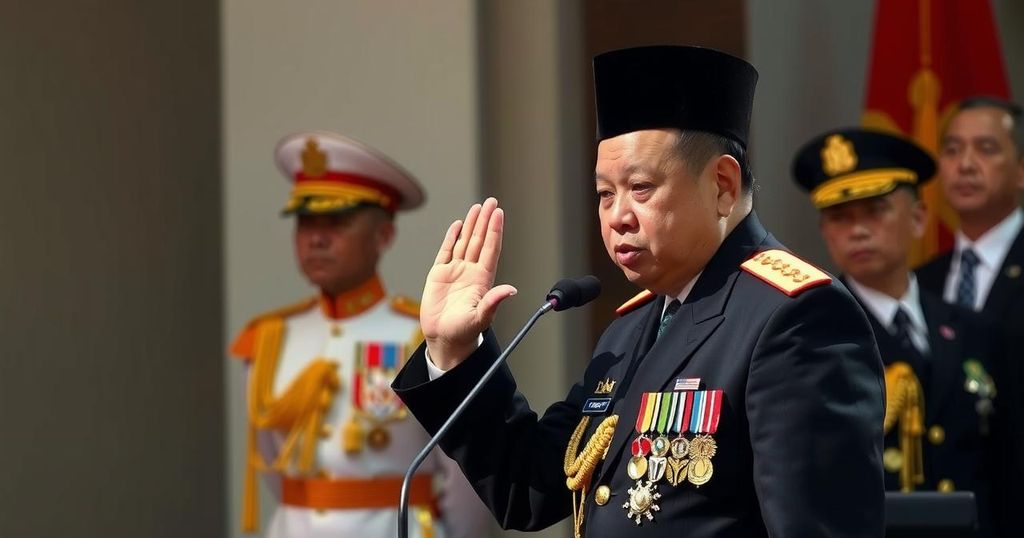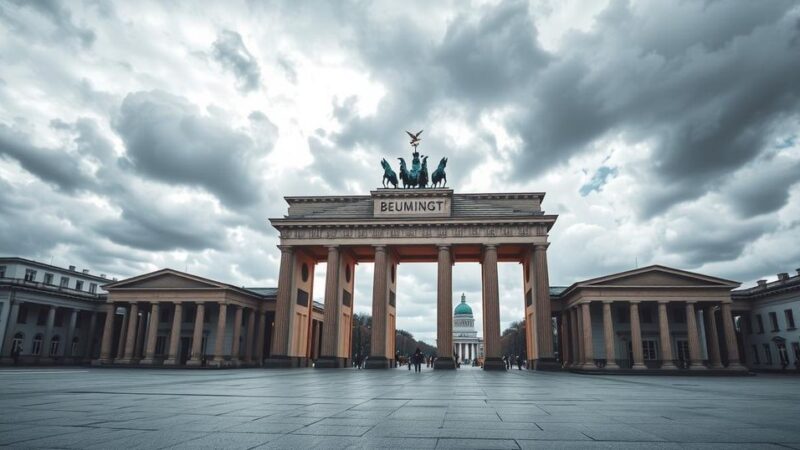Prabowo Subianto has been inaugurated as Indonesia’s eighth President, completing a notable transformation from military general to leader of the world’s most populous Muslim-majority nation. Supported by his predecessor, Joko Widodo, Mr. Subianto campaigned on a platform of policy continuity while facing both domestic challenges and international scrutiny. His vice president is Gibran Rakabuming Raka, the son of Mr. Widodo. The inauguration was marked by the attendance of numerous foreign dignitaries, underscoring its significance on the global stage.
On Sunday, Prabowo Subianto was officially inaugurated as Indonesia’s eighth President, marking a significant transition for the world’s largest Muslim-majority nation. The former general, who faced allegations of human rights abuses during Indonesia’s military regime, has completed his remarkable evolution from military officer to the national leader. After taking his oath on the Quran in a ceremony attended by thousands of supporters and esteemed foreign dignitaries, Mr. Subianto celebrated this milestone in Jakarta. The inauguration was an event of considerable international import, drawing leaders and officials from over 40 countries, including high-profile figures from the United Kingdom, the United States, Russia, and Australia. Mr. Subianto’s ascent to the presidency follows a turbulent political history as he was a former adversary of the popular incumbent, President Joko Widodo. Despite their contentious past, Mr. Widodo appointed Mr. Subianto as Defense Minister, fostering an unforeseen alliance between their two political factions. During the campaign, Mr. Subianto embodied Mr. Widodo’s policy continuations, vowing to uphold significant projects, including the construction of a new capital city and restrictions on raw material exports to stimulate local industry. His victory in February’s presidential election was framed as a continuation of the previous administration’s successful policies. Notably, Mr. Subianto, who has enjoyed prompt backing from Mr. Widodo, will govern alongside his chosen vice president, Gibran Rakabuming Raka, the son of Mr. Widodo. Mr. Subianto’s journey to the presidency is contrasted starkly by Mr. Widodo’s background; he emerges from a wealthy family as opposed to Mr. Widodo’s roots in modest beginnings. As a former commander of special forces implicated in human rights violations yet never tried, Mr. Subianto’s leadership is positioned at a crucial juncture, overseeing a diverse nation amidst fluctuating global economic conditions and intensifying regional tensions, particularly relating to the U.S.-China rivalry. The cancellation of Jordan’s King Abdullah II’s attendance at the presidential ceremony underscores the reality of current geopolitical instability, which Mr. Subianto will need to navigate as he assumes the helm of Southeast Asia’s largest economy.
Prabowo Subianto, born into one of Indonesia’s wealthiest families, has a controversial history as a former Indonesian Army general. He was implicated in significant human rights abuses during the late 1990s military dictatorship, which led to his expulsion from the army and subsequent self-imposed exile. After returning to Indonesia, he re-entered politics and became a prominent figure, eventually contending for the presidency against President Joko Widodo in two elections. Despite their rivalry, Mr. Subianto was appointed as Defense Minister under Mr. Widodo, paving the way for his current presidency. His inauguration reflects ongoing political dynamics in Indonesia regarding continuity and change in governance.
The inauguration of Prabowo Subianto as Indonesia’s eighth President represents a significant political shift, highlighting the country’s complex history with military leadership and democratic transitions. As he steps into this pivotal role, Mr. Subianto is expected to continue the policies of his predecessor while navigating a challenging global economic landscape and regional tensions that could impact Indonesia’s vast and diverse population. His past controversies and the support from former rivals may complicate his governance approach in the coming years.
Original Source: www.thehindu.com






